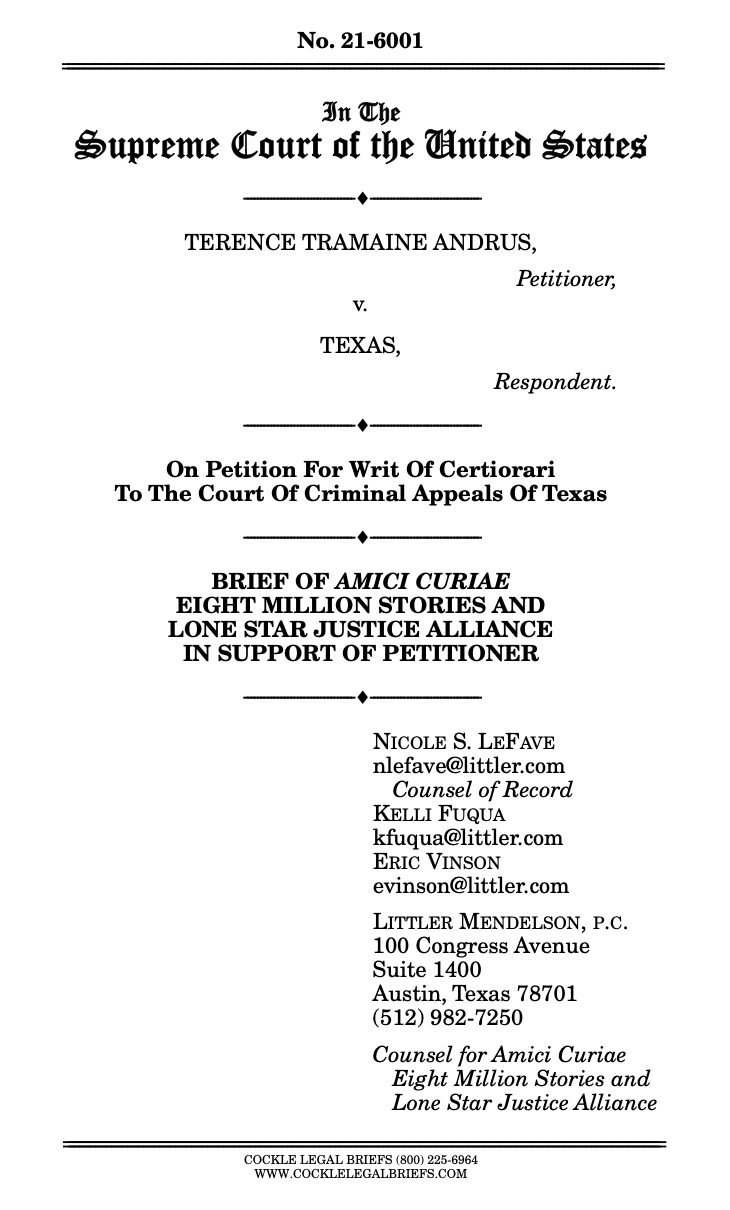
Summary of Argument
The amici curiae defer to the Petitioner’s sub- mission for a comprehensive recitation of the facts. Briefly, as relevant to the amici curiae’s interest, Mr. Andrus is once again before this Court on a writ of ha- beas corpus. After an extensive, eight-day evidentiary hearing that unleashed a “tidal wave” of mitigation ev- idence—a record encompassing 41 full volumes—that was not presented to the sentencing jury, the trial court recommended to the Texas Court of Criminal Appeals (“CCA”) that relief be granted and Mr. Andrus receive a new sentencing trial. Andrus v. Texas, 140 S. Ct. 1875, 1878–79 (2020) (per curiam).
The CCA disagreed in an unpublished, per cu- riam opinion. Id. at 1878. Mr. Andrus appealed to this Court, which unequivocally held that Mr. Andrus’ trial counsel’s performance fell so far below the objective standard of reasonableness that it was deficient within the meaning of Strickland v. Washington, 466 U.S. 668 (1984). Andrus, 140 S. Ct. at 1881–86. This Court remanded the case to the CCA with instructions to determine whether, under the Strickland standard, counsel’s deficient performance prejudiced Mr. Andrus. Id. at 1887.
In a curious act of defiance, the CCA ignored this Court’s instructions. Rather than engage in a robust and genuine Strickland analysis, the CCA focused once again on the record from the underlying trial to the ex- clusion of the habeas record, thereby guaranteeing the same erroneous conclusion that Mr. Andrus was not prejudiced by his counsel’s failure to locate or present any of the facts that came to light in the eight-day ha- beas hearing. Ex Parte Andrus, 622 S.W.3d 892 (Tex. Crim. App. 2021).
The “tidal wave” of mitigation evidence admitted during the habeas proceeding includes substantial de- tails of Mr. Andrus’ upbringing, which—as with many young men in poverty—swept him into the criminal justice system a very young age. The amici curiae ask this Court to view Mr. Andrus’ criminal actions as an adult against the backdrop of his childhood. As a young man, he suffered physical trauma, untreated mental illness, and severe poverty in the then-declining Third Ward in Houston, Texas. His own mother first exposed him to illicit drugs at just six years old. And his forced experience with the rightfully besmirched Texas Youth Commission steered him toward recidivism rather than toward becoming a contributing member of his community.
This background set a young Mr. Andrus into a cycle of incarceration, which, unfortunately, is not unique, especially for children of similar background. Children who grow up in circumstances similar to those confronted by Mr. Andrus frequently return to the criminal justice system, an outcome the amici cu- riae exist to prevent. Had this evidence been presented to the sentencing jury, at least one juror unquestiona- bly would have voted against condemning Mr. Andrus to death.